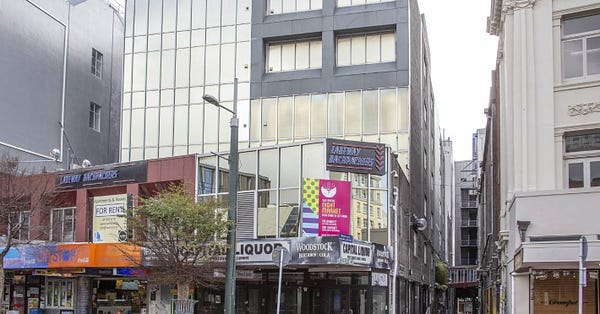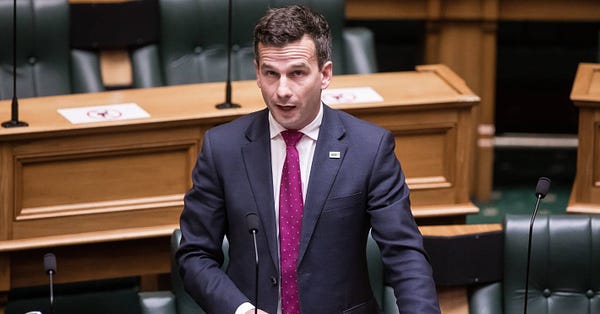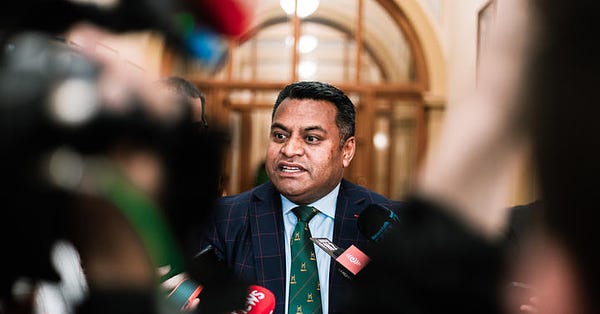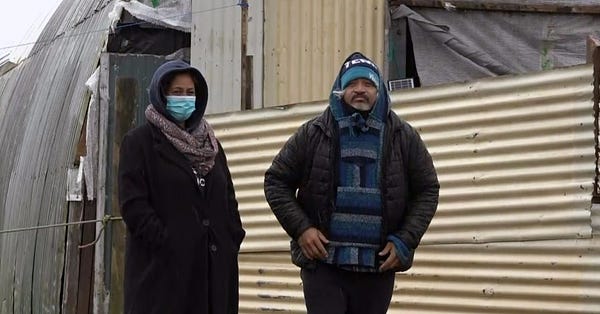TLDR & TLDL: Huge demand from locally-infected covid cases to use limited MIQ spots has extended a pause on the issuance of new MIQ vouchers from a ‘few days’ to weeks. Chris Hipkins even warned expats not to book slots in a new ‘randomised’ queueing system, once it opens up, in order to allow space for humanitarian cases.
“We do need to be able to isolate current Covid-19 cases in the community and their close contacts safely in order to bring the entire of New Zealand back to a sense of normality as quickly as possible.
"That is why we are asking Kiwis abroad to play their part in this response by being patient. I acknowledge that is a very challenging thing to ask of them. Clearly there is a lot of demand, so those who were hoping to have a summer holiday in New Zealand my request of them is to leave the vouchers ... now is not a good time to come home for a holiday with the intention of returning back to where you are.” Covid-19 Minister Chris Hipkins in the 1pm presser.

My view: This reinforces just how hard the next six months will be while we vaccinate as many people as possible before looking at opening up. Our borders are hardening and we risk repeated level four lockdowns until vaccination is well over 90%.
Our emergency departments are already stressed and there’s little political appetite to abandon elimination any time soon (see a new poll below). Given staffing and physical restraints stop expanding MIQ places, along with the late start to vaccination, this means businesses wanting staff to travel overseas, workers to migrate here, businesses wanting students and tourists to spend money here, are all stranded for the foreseeable future.
The costs of the late vaccination start and elimination are mounting up, particular as the rest of the world opens up. Victoria confirmed yesterday it has abandoned elimination.
These comments reported in Ireland from the Malaghan Institute of Medical Health’s Director Professor Graham Le Gros emphasise the challenge.
"The border controls & restrictions we have in place just cannot contain it. It would be foolish to think NZ could pursue a long-term strategy of border control, contact tracing & elimination to keep it out.” Malaghan Institute of Medical Health’s Director Professor Graham Le Gros on RTE.
Elsewhere in local news breaking this morning:
Grant Robertson is looking at giving more cash support for non-wage costs to small businesses (Stuff)
Chris Hipkins also said Auckland DHB emergency care departments are stretched and need 20 nurses to come and help from outside Auckland (RNZ)
A locomotive and a wagon fell off an Interislander ferry into Picton harbour late yesterday (TVNZ)
A NZ Herald/Kantar poll found 46% believed Aotearoa-NZ should pursue elimination, 39% supported elimination until over 70% vaccination and 13% said ‘live with covid’
Air NZ is pushing to make vaccination mandatory for another 4,100 workers (NZ Herald-$$$)
Building material suppliers are worried a Government ban on moving materials outside Auckland will halt building elsewhere (Stuff)
In other covid news this morning
Kids get long Covid - A British study released overnight found one in seven children aged 11 to 17 suffered three or more symptoms 15 weeks after infection. The CLoCk study looked at 3,000 kids infected between January and March this year. This might add even more pressure for Aotearoa-NZ to stick with elimination well into next year. (Bloomberg)
Long Covid damages kidneys - A US study released overnight found increased kidney damage among people with long Covid. (Science Daily)
‘We’re not opening up’ - The state Premiers of Queensland and Western Australia were defiant yesterday in not joining Australia’s national strategy of starting to open up after reaching 70% vaccination rates. Victoria formally gave up on elimination yesterday as it reported 120 new cases. Queensland and Western Australia have pledged to maintain hard borders with New South Wales and Victoria until they have vaccinated their kids, which would create a major rift in Australia’s economy. (ABC Australia)
Mu is next - The World Health Organization identified a new Covid variant it called Mu. It was responsible for 39% covid infections in Colombia and 13% in Ecuador. The WHO said its mutations indicated “potential properties of immune escape” and early data showed vaccines were less effective for Mu, similar in a way to that seen for Beta. (Guardian)
In the global economy
‘We’re overloaded’ - Australia Post announced an unprecedented three-day pause in pickups from premises in New South Wales, ACT and Victoria because of Covid disruptions.
Churning it out - US manufacturers grew output faster than expected in August, the Institute for Supply Management’s survey found. The PMI rose to 59.9 last month from 59.5 in July. Economists had expected around 58.6. Anything over 50 represents rising output.
But jobs disappoint - US private sector payrolls data from ADP found jobs rose 374k in August, which was less than economist forecasts of around 613k, although higher than the 326k seen in July. Delta was seen softening new employment. This is a closely watched figure ahead of the really big one: US non-farm payrolls due early on Saturday morning NZ Time. Economists expect about jobs growth of about 750k.
China’s factories pause - The Caixin PMI measure of Chinese factory output fell to 49.2 in August, indicating the first contraction since April 2020. An official PMI index figure out on Tuesday showed expansion with a level of 50.1. The Caixin measure is seen as a better indicator of smaller and medium sized companies in China.
Hawk replaces dove - The Bank of England appointed former Goldman Sachs economist Huw Pill as its new Chief Economist to replace Andrew Haldane, who is retiring. Pill is seen as more orthodox and hawkish than Haldane. Pill has proposed limits on the use of Quantitative Easing while working at the European Central Bank with Otmar Issing, who was also a hawk.
Dribbling it out - OPEC + decided overnight to increase supply only slightly, ignoring requests from US President Joe Biden to release extra volumes to push down prices from their current US$70/bbb.
Double deep recession? - Australian GDP rose 0.7% in the June quarter from the March quarter, which was more than the 0.4% median forecast from economists, albeit a slowdown from the upwardly revised 1.9% growth in Q1. But it’s all moot, given the September quarter is seen badly affected by the lockdowns in Sydney and Melbourne in July and August. Economists see Q3 GDP falling around 3.0%, with the prospect for another fall in Q4 enough to qualify as a double dip recession.
In markets news, Asian, European and US stocks less than 0.5% overnight rose on hopes of Chinese government stimulus after the weaker than expected Chinese factory output figures. European bond prices fell a bit (which meant their yields rose) on talk the European Central Bank would start talking about tapering its money printing at its meeting next week. Although up a bit means still means the German 10 year bund yield rose a couple of basis points to minus 0.37%.
‘You’re under pressure’ - Apple working to add a tool for its smart watches to tell users when their blood pressure is increasing and a thermometer to help with fertility planning. It plans to launch a seventh generation of its watches in coming weeks, but the new features are not due until 2022, the WSJ-$$$ reported.
Signs o’ the times news


Useful longer reads





Some fun things
Ka kite ano
Bernard




















Share this post